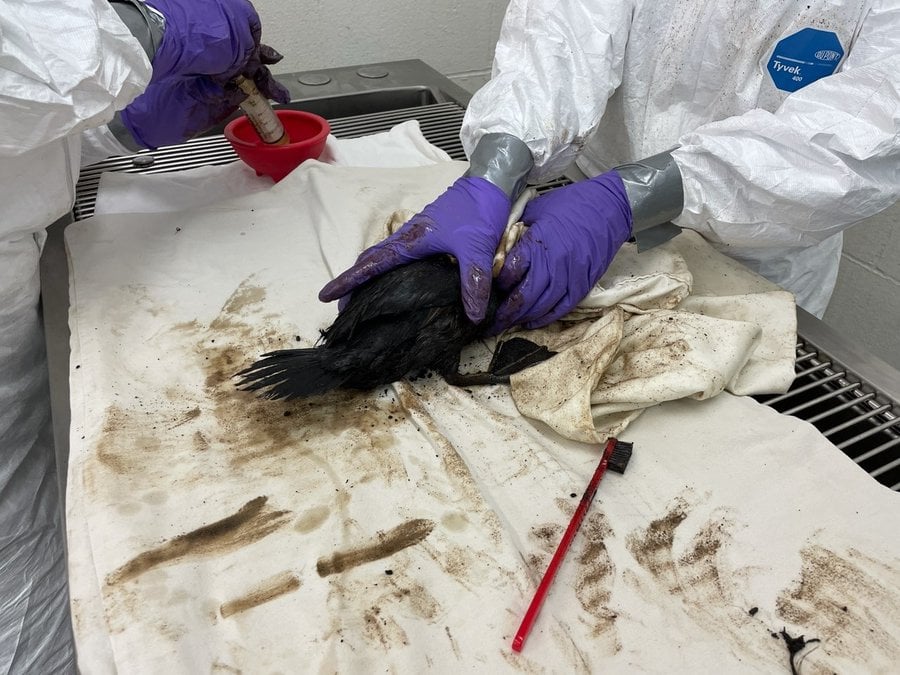
A ruptured undersea oil pipeline off the coast of Huntington Beach, CA, has leaked thousands of gallons of oil into the Pacific Ocean, threatening fish and wildlife and causing numerous beach closures. The spill, caused by a 13-inch tear in a pipeline that transports crude oil from an offshore drilling platform to a pump station in Long Beach, CA, was first reported by locals on October 1, 2021. Experts are still trying to determine the amount of oil leaked before the pipeline was shut down on October 3, 2021. The estimates range anywhere from 25,000 gallons to 136,000 gallons.
The strong ocean currents and winds have carried the oil down the coastline to San Diego, CA, causing officials to scramble to protect the area's biodiversity-rich wetlands. Volunteers from Oiled Wildlife Care Network (OWCN) have also been scouring the beaches looking for animals covered in oil. Fortunately, the number has not been as high as initially expected. As of October 11, 2021, the rescue organization has recovered and treated 27 oiled birds. Of these, only one, a brown pelican, had to be humanely euthanized due to a chronic, unrelated injury. The number of dead birds (38) and fish (9) washed ashore have also been relatively low.

Some experts are afraid of the oil's impact on the millions of birds that migrate through the state on their way south each fall. "It's devastating," John Villa, the executive director of Huntington Beach Wetlands Conservancy, which owns and manages 127 acres of wetlands along the coast, told Vox. The environmentalist says the toxic fluid has seeped into the marshes, which are home to several endangered avian species. Among them is the least tern, a small seabird with a worldwide population estimated to comprise only about 18,000 individuals.
Crude oil can also destroy large amounts of phytoplankton. The tiny algae are the basis of the aquatic food chain, feeding everything from microscopic, animal-like zooplankton to multi-ton whales. The oil also kills plants, making the coastline more susceptible to erosion. However, Ronald Tjeerdema, an environmental toxicologist at the University of California Davis, is optimistic that the California ecosystems will recover from the spill. "The main point I want to make, having studied spills for so long, is that the environment recovers over time — it's really resilient," he says.

An investigation of the cause of the pipeline rupture is currently underway. In the meantime, life appears to be getting back to normal on Huntington Beach, with the city and state beaches reopening on October 11, 2021. While most other beaches farther south have also been reopened to the public, ocean access is restricted until officials ensure the water is free of oil-associated toxins.
Resources: Vox.com, Foxbusiness.com, CNN.com, Axios.com
